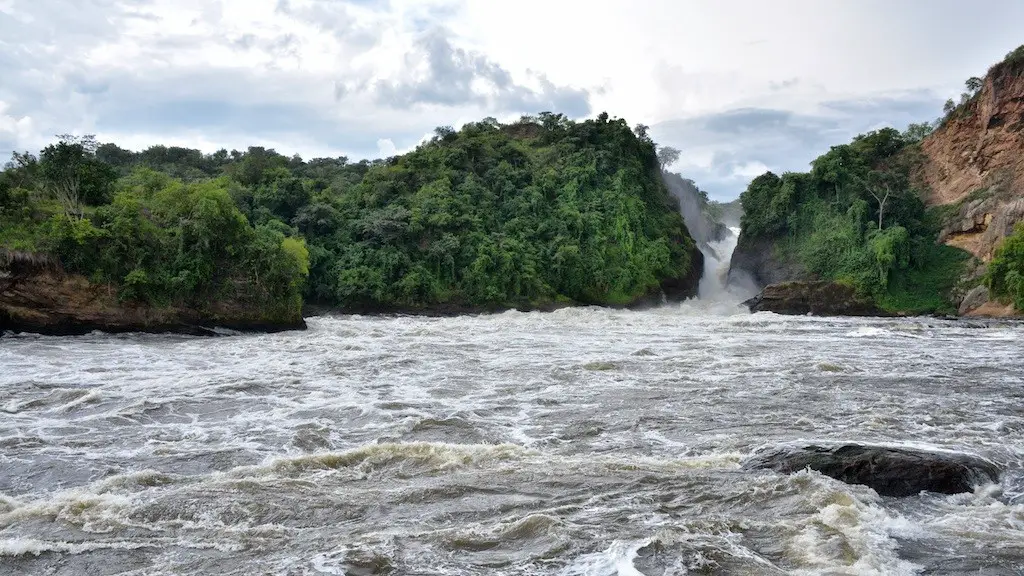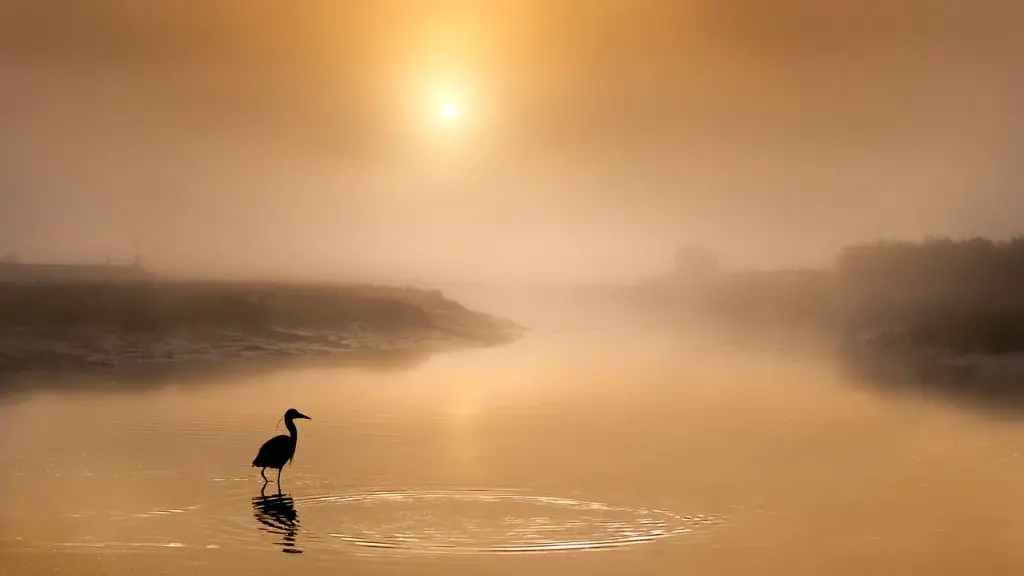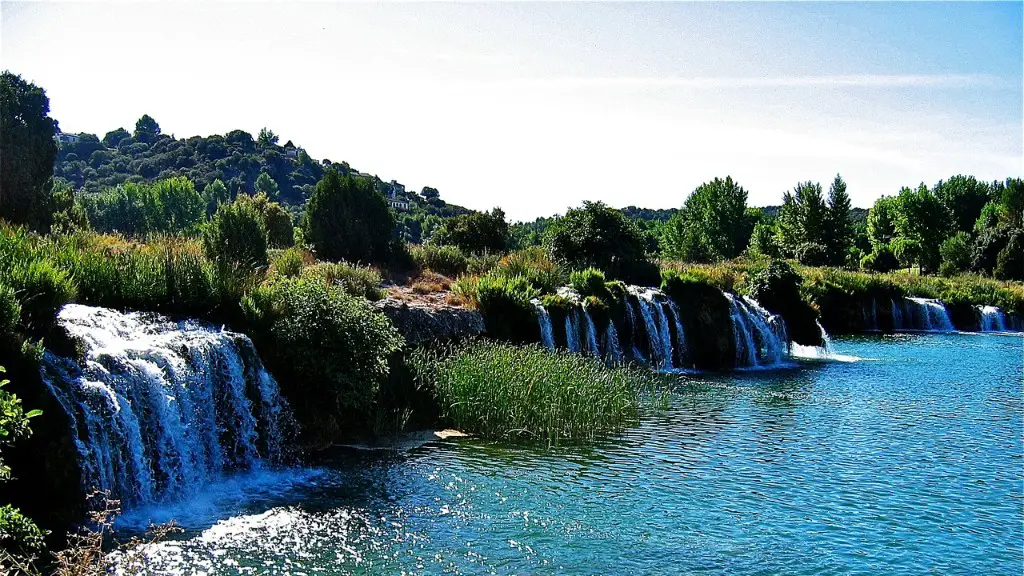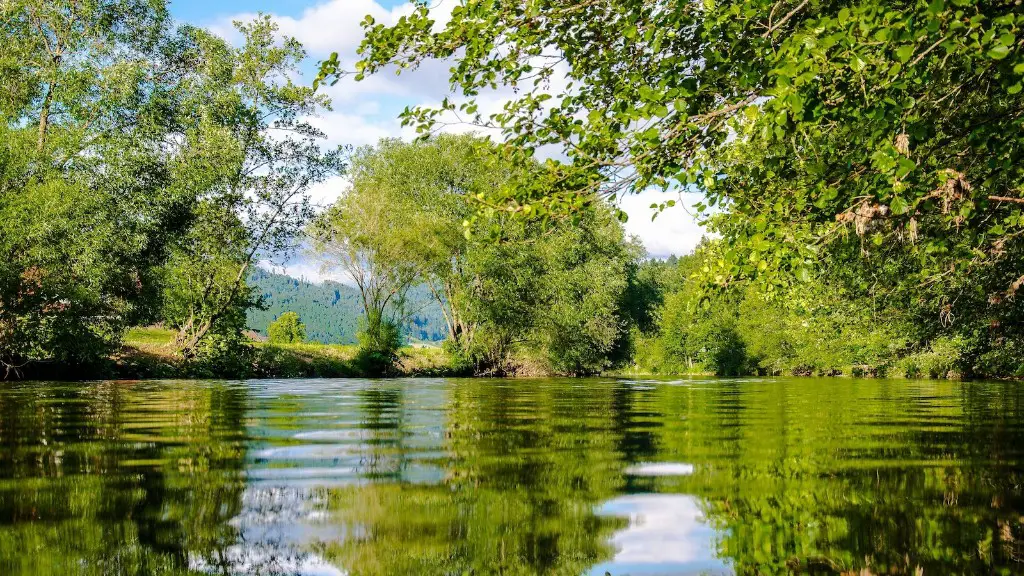Mississippi River Location
The Mississippi River is the largest river in the United States and is more than 2,300 miles long. It begins near Lake Itasca in Minnesota and travels through 10 states before emptying into the Gulf of Mexico. This mighty river serves as an important transport corridor for a number of industries, as well as for recreational purposes.
Mississippi River Ecosystem
The Mississippi River provides habitat for countless species of wildlife and fish, including catfish, sturgeon, bass, muskellunge, and many more. The river also plays an important role in the maintenance of the ecosystem by providing food and shelter for the many aquatic species that live along its banks.
Mississippi River End Point
The Mississippi River’s end point is the Gulf of Mexico, near the border of Louisiana and Mississippi. The river empties into the Gulf of Mexico at a point known as the “Bird’s Foot Delta”, where it divides into several separate channels that feed the various bays, inlets, and estuaries of the Gulf coast.
Mississippi River Impacts
The Mississippi River has a significant impact on the surrounding environment, from the way it reshapes the land by flooding to the way it affects the soil composition of the land around it. It is the main source of freshwater for the region, and the health of the river ecosystem has a direct impact on the health of the surrounding ecosystems.
Industry on the Mississippi River
The Mississippi River is an important corridor for a number of industrial activities. Shipping, transportation, and other industries rely on the Mississippi River for transport. The industries that utilize the river often have an effect on the health of the river ecosystem, so it is important to manage this activity carefully.
Mississippi River Pollution
The Mississippi River has long been an important waterway for the United States, but it has been greatly impacted by pollution. Sewage runoff, agricultural runoff, and industrial runoff all have had a detrimental effect on the river’s ecosystem. As a result, a number of environmental organizations are working to reduce the amount of pollutants that enter the river.
Wildlife on the Mississippi River
The Mississippi River provides habitat for a wide variety of wildlife, ranging from birds to butterflies to fish to mammals. The river is also home to over 500 species of amphibians and reptiles, many of which rely on the health of the river’s ecosystem for survival. Conservation efforts are underway to protect the river’s ecosystem and ensure the survival of its wildlife.
Mississippi River Management
The Mississippi River is heavily managed by the US Army Corps of Engineers, and a number of regulations are in place to protect the river and its ecosystem. Water levels must be carefully monitored and managed, and various industries that use the river must comply with regulations outlined by the Corps. Additionally, conservation efforts are in place to protect the river’s wildlife and habitat.
Mississippi River Conservation
Conservation efforts for the Mississippi River are of vital importance for its environment and its wildlife. Organizations such as the Audubon Society, Sierra Club, and other smaller local organizations are working hard to protect the river from pollution and reduce the impact of human activities on its ecosystem. They work with local governments and agencies to ensure that regulations are being followed and that the river is being managed in a sustainable manner.
Restoration Projects on the Mississippi River
Restoration projects on the Mississippi River are part of an effort to restore its health and habitat. Projects such as wetland restoration, reforestation, and riverbank stabilization are vital for bringing the river back to its natural state. Organizations such as the Nature Conservancy are involved in these efforts, which are often funded by state, federal, and private grants.
Mississippi River Education and Awareness Programs
Educational and awareness programs help to raise public consciousness about the importance of the Mississippi River and the importance of protecting and preserving its health. Schools, universities, and community organizations all help to educate the public about the importance of the river, and how their actions can affect its environment and its wildlife.
Conservation and Preservation Programs for the Mississippi River
Conservation and preservation programs are essential for the health of the Mississippi River and its environment. Organizations such as the Mississippi Valley Conservancy work to protect areas of the river and its surrounding environment, while programs such as the Mississippi River Delta Network help to connect local communities who are passionate about the preservation of this iconic river.



